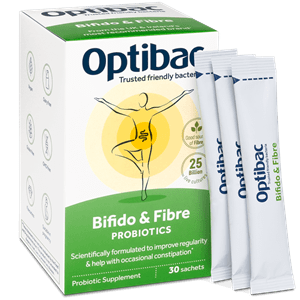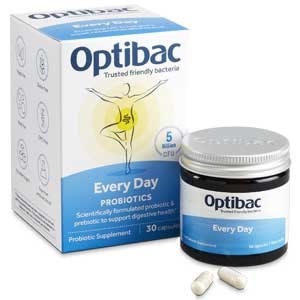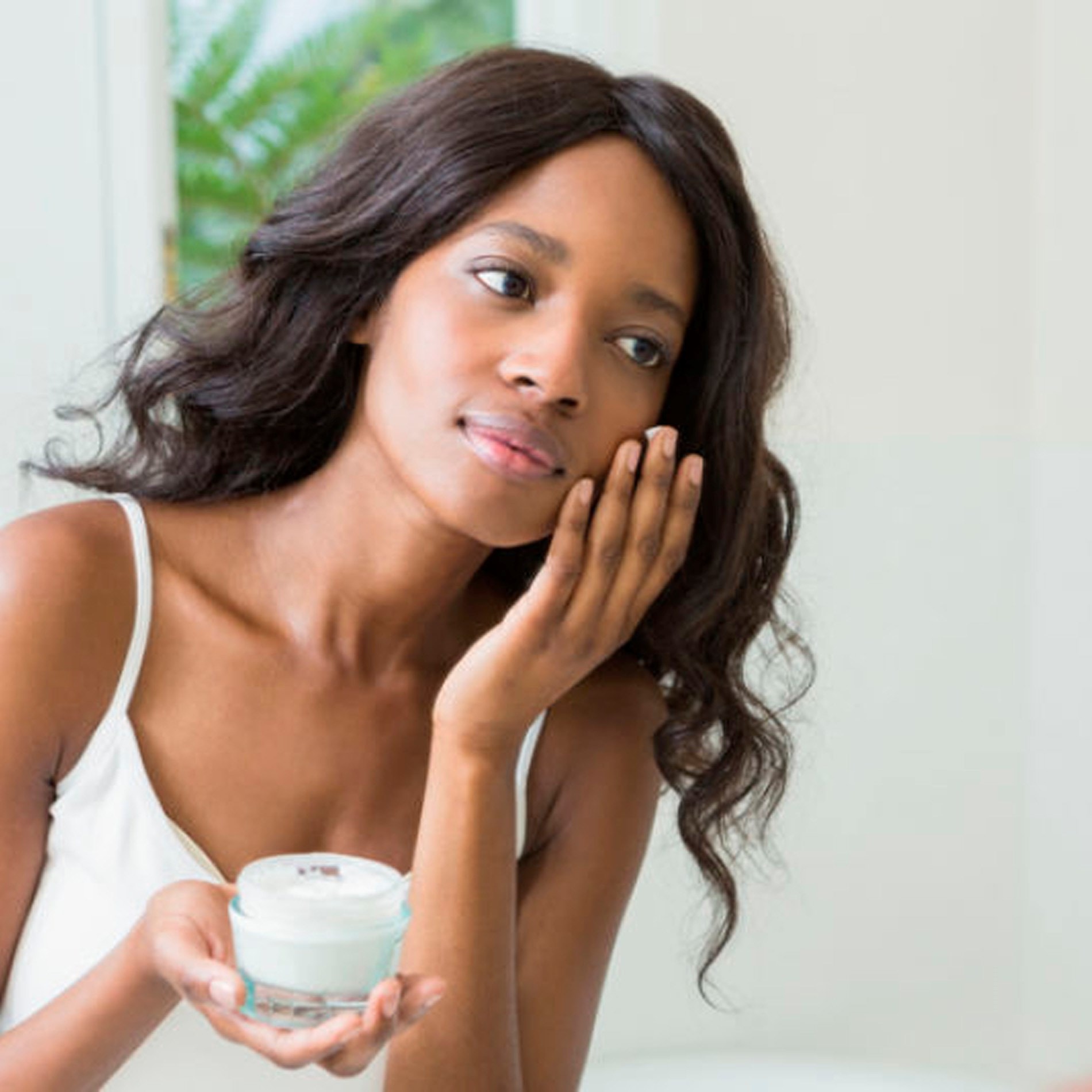Which Probiotics are Best for Teenagers?
Parents of teenagers will know only too well that the transitional years between childhood and adulthood can be full of turmoil. These years are often difficult for everyone in the household, as tension increases and tempers fray. In this article, we will look at both the physical changes that occur during adolescence and lifestyle factors that have knock-on effects on the physical wellbeing of young people. We’ll also discuss the surprising role that the microbiome can play in common ‘teen’ symptoms, and how probiotics might help. Read Dr. Kate's fascinating article to learn: 'All about the microbiome'.
This article is aimed at children 13 years and older. For children 12 and below, please see Probiotics for Kids.
This article covers:
Physical changes during adolescence
There are two main areas of physical change during adolescence that have far-reaching effects in the body. The first, and most obvious, is the onset of hormonal changes, and the second (less obvious) area of change is in the brain. Brain development is often overlooked when trying to understand and navigate the ‘choppy waters’ of teenage emotions! Let’s take a closer look at these areas.

Sex hormones
Sex hormones are present in tiny quantities from birth, however they surge during puberty. The main hormones in question are oestrogen (responsible for anatomical changes, and the onset of menstruation in girls) and testosterone (responsible for the development of facial hair, and a drop in voice pitch etc. in teenage boys).
In addition to transforming a child’s body into that of a young adult, the sudden surge in sex hormones can also lead to behavioural changes. As a result of wildly fluctuating hormones, teenagers can experience intense emotions and may swing from one emotional state to another. An emerging interest in romantic relationships can be confusing for many, and bring about new emotional challenges.
The sex hormones also affect circadian rhythms, meaning that teenagers may be inclined to stay up later at night. A lack of quality sleep adds to any emotional difficulties, and also affects the physical body in many ways, including lowering immunity1, impairing healing2, affecting cognition3 and causing blood sugar swings4.
Lastly, sex hormones also cause an increase in sebum production, which often leads to blocked pores and acne. At a time when appearance becomes increasingly important, skin health issues can be a constant source of upset and low self-esteem for teenagers.
Whilst hormones play a part in the process, teenage acne is actually an inflammatory condition, with sufferers having higher levels of inflammatory cytokines (markers) in the blood. Inflammation often stems from the gut, as toxins produced by pathogenic (harmful) strains of bacteria and yeast cause inflammation of the gut lining.
Taking a well-researched multi-strain probiotic can be helpful for healing the gut, rebalancing microbial communities and reducing systemic inflammation. Additionally, Streptococcus salivarius10 strains have been shown in-vitro to reduce Propiobacterium acnes colonisation. P. acnes is a pathogenic species of bacteria often implicated in acne. The relationship between the gut and skin, known as the gut-skin axis, is exciting scientists and offering a whole new avenue for skincare.
Brain development
You might be surprised to know that the human brain is not considered fully developed until we reach our mid-to-late 20s! So whilst a teenager goes through anatomical changes that make them look more like an adult from the outside, cognitively they are still quite far from reaching maturity.
The prefrontal regions of the brain, including the frontal lobe, are the last to fully develop, not reaching full maturity until our late twenties. The frontal lobe is responsible for many complex thought processes, including rational thinking, predicting consequences for our actions, and suppressing socially unacceptable behaviour. This region plays a big role in our choice between what would be a good, or bad, action to take in a given situation. With this brain region still in an immature state, teenagers can often make what adults would consider to be poor or ‘risky’ choices.
So, whilst ‘hormones’ generally take the blame for teenage moodiness, in reality, brain development, or lack thereof, is also implicated.
.jpg)
Lifestyle changes in adolescence
Along with physical changes, most teenagers also see huge changes to their lifestyle in these transitional years. It should not be overlooked just how much these lifestyle factors can impact both their health and their mood.
Typical symptoms experienced during the teenage years include acne, weight gain, fatigue, anxiety, self-esteem issues and moodiness. These may all be helped with improved lifestyle choices. Interestingly, most of these symptoms also respond to improvements to the gut microbiome.
The teenage years are usually when children start to take a little more control over their own lives. Having previously been dependent on parental guidance, they may now start to have more influence over factors such as what & when they eat, and how much sleep they get. Additionally, external pressures increase with teenagers facing exam stress and also pressure from their peers to perhaps have the latest trend items, or to look a certain way.
Teenage diet and gut health
As soon as they leave the house, our teens are bombarded with advertising and the temptation to buy lots of unhealthy types of food. Eating ‘on the go’ and at irregular times of the day are also not conducive to optimum digestion, as the body digests better when it is at rest and in sync with circadian rhythms. Many adolescents fall prey to the rush of a quick sugar high, but probably don’t realise that sugar damages our health on many levels.
Firstly, a high sugar diet creates havoc in the gut, feeding bad bacteria and yeasts. An overgrowth of pathogenic microbes can lead to symptoms such as bloating, constipation or diarrhoea and abdominal pain. On a broader level, it can also be a factor in systemic symptoms, such as obesity, acne, inflammation and, of course, hormonal fluctuations. At a time when hormones are already surging, these are all symptoms that could be done without. Helping your teenagers to understand the links between what they eat and how they feel and look could help to make their adolescence easier. Find out more about the link between our gut and skin health in our article: Probiotics for Acne & Skin Health.
Having good gut health is vital to maintaining hormone balance. If constipation is present, ‘spent’ hormones may be reabsorbed, rather than excreted, from the bowel. By recycling ‘old’ hormones in this way, constipation is known to exacerbate existing hormonal issues11. In order to improve bowel regularity, teenagers should ensure that they are eating a fibre-rich diet, with plenty of fresh fruit and vegetables. It is also important to maintain adequate hydration levels, and to ensure regular exercise is taken, as regularity is improved by activity. Encouraging teenagers to join school sports or activity clubs or planning family trips doing something active at the weekend are two good ways to incorporate more activity into their lives.
Additionally, certain strains of probiotics have been shown to improve bowel transit time. The strain Bifidobacterium lactis BB-12® has been extensively researched for constipation and can be taken in supplement form to improve bowel regularity.
Lack of sleep
Sex hormones affect our circadian rhythms, which means that teenagers often feel energised in the evening, and are resistant to the idea of going to bed. This, coupled with the temptations that their phones offer, can mean that teenagers are just not getting the amount of quality sleep that they need. Not only does a lack of sleep lower our immunity, affect our mood, and reduce cognition, but research also suggests that it also affects our microbiome. A small Swedish study9 showed that after just two nights' sleep deprivation, the study participant’s microbiome was significantly altered. Click here to read more: Does lack of sleep affect gut bacteria?.

Fatigue
Teenagers often feel fatigued. Whilst a lack of sleep and poor diet makes this worse, another key factor is that their bodies are undergoing a period of rapid growth. Demands on their energy are high, which is why they often feel hungry a lot too. Ensuring that nutrients are being absorbed effectively from their food is vital. Probiotics can help in the process of digestion and absorption, as they produce digestive enzymes which help with food breakdown. They also improve the health of the gut lining, which allows for greater absorption of nutrients. You can learn more about this in Dr. Kate’s article: What are probiotics?.
All metabolic processes rely on an adequate supply of micronutrients, and the B-family of vitamins, in particular, are used in energy production. Probiotic bacteria can be helpful here too, as they actually produce certain B-vitamins for us, whilst also helping us absorb key vitamins and minerals from the digestive tract. Any good, well-researched probiotic that has been shown to survive to reach and adhere to the gut would help here. Find out how companies ensure the survivability of probiotic strains in the following blog: Do probiotics survive to reach the gut alive?.
Stress
The teenage years can be difficult years to navigate. As emotional intelligence is still developing, dealing with new (and potentially stressful) situations may lead to anxiety and depression, both of which can affect numerous areas of health and wellbeing.
Sadly, mental health problems are on the rise. This is a trend seen amongst all age groups, however teens fare particularly badly, with as many as 1 in 55 adolescents affected. This figure is slightly higher in teenage girls, with 1 in 46 said to be affected by the age of 14.
In response to stress, the body increases the production of stress hormones, namely cortisol and adrenaline. These hormones affect our blood sugar levels and can lead to blood sugar ‘crashes’ and a craving for high energy foods. An over-reliance on these types of foods makes teenage hormonal swings even worse, and can also lead to weight gain.
Additionally, stress hormones have been shown to negatively impact the gut microbiome. In a trial7 involving 47 pre-term infants (born at between 24-37 weeks), regular stool samples were taken during their stay in NICU, and analysed for microbial composition. Babies in a neo-natal unit were purposefully selected for this trial, as according to the study authors, this environemnt exposes infants to numerous stressors, including separation from parents and potentially painful medical procedures. The cumulative effect of such high-level stressors, and with babies having no way to verbalise this stress, may lead to toxic stress exposure.
The results showed that whilst the process of infant gut microbial colonisation is affected by many factors, stress appears to be a significant one. The authors concluded that:
For vulnerable preterm infants who experience high NICU stress exposure, our data suggest these infants also experience increased microbial abundances of Proteus and Veillonella. As a species of Gamma-proteobacteria, dominance of Proteus may pose an in‐creased risk for immunocompromised preterm infants.
As well as stress affecting the microbiome, clinical trials in humans have found reverse effects to be present, too. Taking probiotics can support our mental wellbeing thanks to our gut-brain axis. Supplementing with certain strains of probiotics, including Lactobacillus acidophilus Rosell-52 and Bifidobacterium longum Rosell-175 may improve our mental health8.
L. acidophilus Rosell-52 and B. longum Rosell-175 have been shown in a gold standard human clinical trial to significantly reduce depression, anger hostility and psychological distress, as well as have positive effects on anxiety. The study also improved problem-solving skills and self-blame scores which could be of interest to teenagers going through exam seasons.
Supporting teenagers through any particularly stressful times with a probiotic researched for mental health can be very helpful. Taking prebiotics can also help, as prebiotics encourage the proliferation of friendly strains of bacteria in the intestine.

You can read more on the relationship between the gut and our emotional health in the following articles:
The Gut-Brain Axis
Probiotics and Emotional Health.
Can high fibre diets improve brain health?
You can find the above strains in Optibac Probiotics Every Day.
Intimate health
As hormones surge in the body, teenagers naturally start to explore their sexuality. The topic of sexual education is broached at a young age at school, so our youngsters are hopefully fully aware of the risks of STIs and pregnancy. However, for girls, the onset of menstruation, caused by the surge in oestrogen and progesterone, can sometimes signal the arrival of unwanted vaginal infections. Infections such as thrush and bacterial vaginosis are rare in pre-menstrual girls, but common after the onset of menses. The vaginal flora is sensitive to fluctuations in hormones, which can result in recurrent vaginal infections. Read our article ‘All About Your Vaginal Flora’ to find out more about the factors affecting vaginal health, and how probiotics might help.
Only certain strains of probiotics have been proven to have a beneficial effect on vaginal health. In order to improve the vaginal flora, probiotic bacteria need to survive transit through the entire length of the GI tract, and then successfully colonise the vaginal tract. Once colonised they need to produce anti-microbial substances to inhibit the growth of pathogenic bacteria and yeasts that cause common vaginal infections.
Probiotic strains that have been trialled in humans and are known to be beneficial include: Lactobacillus rhamnosus GR-1® and Lactobacillus reuteri RC-14®. A combination of these two strains has been shown to reduce the risk and help alleviate symptoms of thrush, cystitis and bacterial vaginosis.
Probiotics for your teens
Probiotics can offer support to the whole family, but especially teenagers who face one of the most physically, mentally, and emotionally challenging periods of their lives. There is good evidence to suggest that many of the physical and emotional health issues can be helped by probiotic supplementation. Where possible, it is recommended to select a probiotic that contains strains which have been researched for your teen's individual health needs. Always focus on trying to resolve digestive symptoms first, as good health starts in the gut! By helping to mediate stress, balance hormones, produce B-vitamins (for energy) and reduce inflammation in the body, probiotics can help with many physical and emotional aspects of adolescence.
Many teens may even wish to continue with their probiotic into adulthood to support their health and wellbeing as they face new challenges, such as the workforce and even parenthood.

To summarise, we can support our teens by:
- Encouraging them to eat a varied balanced diet and limit sugar levels.
- Ensuring they get plenty of exercise, even if it's just walking the dog.
- Think about an evening “9pm” phone/laptop ban to encourage better sleep and limit fatigue.
- Encourage your teen to open up to you, a family member, a school teacher they trust or even a therapist to discuss any issues that might be weighing down on their mental health. Offer them all the support you can give.
- Consider giving your teen a probiotic that can target specific health conditions or offer all round support. Looking after their guts can bring surprising all round support and give that extra boost they may need.
This article forms part 6 in our educational resource, ‘Early life microbiome series’, where we take you on a journey through the development and support of the microbiome from conception through to young adulthood. The other articles in this series are:
- All About The Microbiome
- Child Microbiome: Dr Kate's Guide - this explores the factors affecting the microbiome in childhood
- Probiotics for Pregnancy
- Baby Probiotics
- Probiotics for Kids
- Which probiotics are best for teenagers?
Healthcare professionals can read more about Bifidobacterium lactis BB-12® and other strains in the Probiotics Database.
References
- Bryant PA et al. 2004. Sick and tired: does sleep have a vital role in the immune system? Nature Reviews Immunology volume 4, pages 457–467
- Shilo L (MD) et al. 1999. Patients in the Intensive Care Unit Suffer from Severe Lack of Sleep Associated with Loss of Normal Melatonin Secretion Pattern. The American Journal of the Medical Sciences. Volume 317, Issue 5, Pages 278-281.
- Killgore WDS. 2010. Effects of sleep deprivation on cognition. Neuroimaging Center, McLean Hospital, Harvard Medical School, Belmont, MA, USA. Progress in Brain Research. Volume 185, Pages 105-129.
- Chaput JP. July 2014. Sleep patterns, diet quality and energy balance. Healthy Active Living and Obesity Research Group, Children's Hospital of Eastern Ontario Research Institute, Ontario, Canada. Physiology & Behavior. Volume 134, July 2014, Pages 86-91
- https://www.mentalhealth.org.uk/statistics/mental-health-statistics-children-and-young-people
- https://www.nhs.uk/news/mental-health/many-teenagers-reporting-symptoms-depression/
- D’Agata AL et al. Dec. 2018. Effects of early life NICU stress on the developing gut microbiome. College of Nursing, University of Rhode Island, Kingston, Rhode Island, USA. Wiley Developmental Psychobiology. DOI: 10.1002/dev.21826.
- Messaoudi M. et al., (2011), ‘Assessment of psychotropic-like properties of a probiotic formulation (Lactobacillus helveticus R0052 and Bifidobacterium longum R0175) in rats and human subjects’. British Journal of Nutrition, 105(5):755.
- Benedict. C et al. 2016. Gut Microbiota and Glucometabolic Alterations in Response to Recurrent Partial Sleep Deprivation in Normal-weight Young Individuals. J. Molecular Metabolism.
- Bowe WP et al., (2006). Inhibition of Propionibacterium acnes by bacteriocin-like inhibitory substances (BLIS) produced by Streptococcus salivarius. J Drugs Dermatol. 5 (9): 868
- Lewis S.J et al. 1997. Lower serum oestrogen concentrations associated with faster intestinal transit. Br J Cancer. 76(3): 395-400.
Popular Articles
View all Children's Health articles-
General Health08 Mar 2024
-
General Health04 Mar 2024
-
General Health06 Dec 2023


